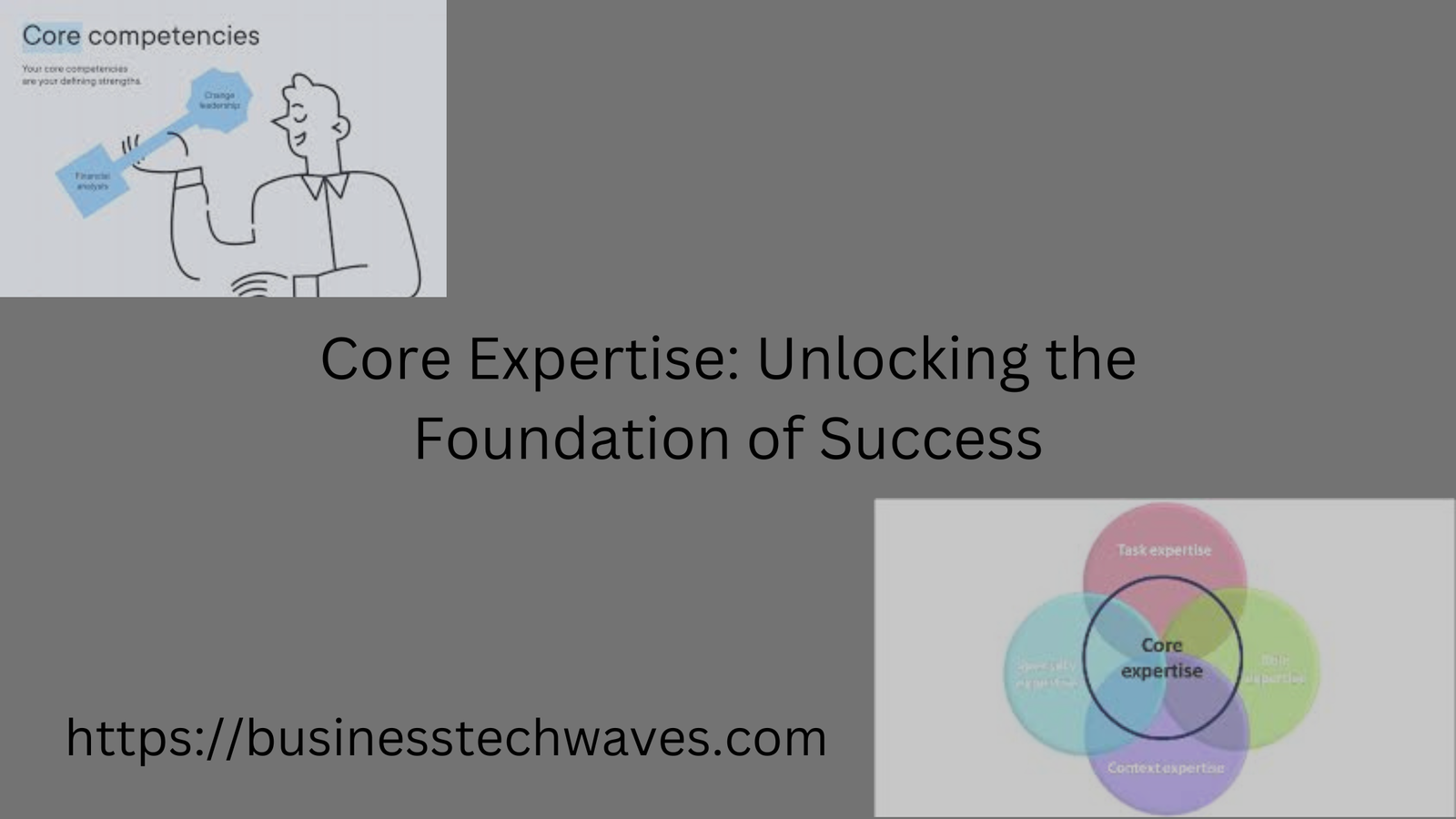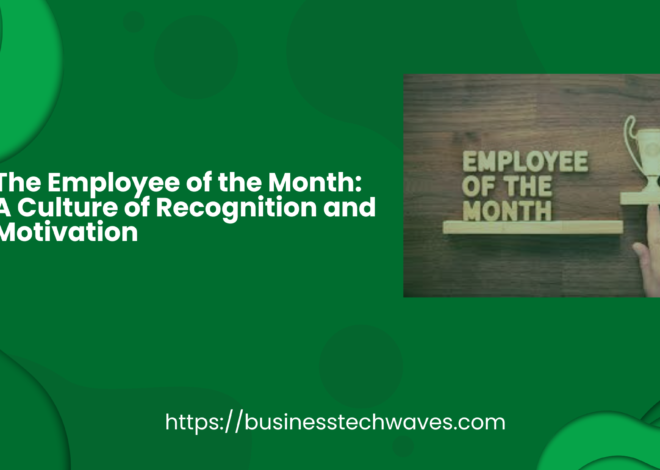
Core Expertise: Unlocking the Foundation of Success 2024
In a world driven by rapid technological advances, interconnected global economies, and ever-evolving industries, the concept of core expertise has emerged as a crucial determinant of both personal and organizational success. Core expertise refers to the specialized knowledge, skills, and abilities that allow individuals and businesses to excel in a specific domain. It’s the backbone of productivity, the driver of innovation, and the key to differentiation in a competitive landscape.
This article delves into the essence of core expertise, its significance in various spheres, how it’s cultivated, and why mastering a particular set of skills or knowledge can be the pivotal factor for sustained success in today’s dynamic environment.
Defining Core Expertise
At its simplest, core expertise is the proficiency or mastery in a particular area. For an individual, it could be an in-depth understanding of a specific discipline—such as data science, marketing, engineering, or finance. For businesses, core expertise refers to what the company does best: the foundational strengths that give it a competitive edge in the marketplace.
In both cases, core expertise is more than just familiarity or basic competence. It involves deep, comprehensive knowledge, continuous learning, and an ability to apply specialized skills effectively to solve problems, innovate, or deliver exceptional results.
Key Characteristics of Core Expertise
- Specialization: Core expertise is centered on a specific skill set or knowledge area. While generalists have a broad understanding of various subjects, specialists focus on mastering one area to the point where they are seen as authorities or go-to experts.
- Depth of Knowledge: This involves going beyond the surface level, gaining a deep understanding of intricate details, methodologies, trends, and developments in the field.
- Practical Application: Core expertise is not just theoretical knowledge; it’s the ability to apply this knowledge in real-world situations. This could be solving a critical problem, developing new innovations, or optimizing processes.
- Continual Development: Expertise requires ongoing learning and adaptation. Staying updated with the latest research, technologies, or industry practices is essential for maintaining relevance.
- Value Creation: Ultimately, core expertise must contribute to tangible outcomes. For individuals, this could be career growth or recognition, while for organizations, it’s often seen in profitability, market leadership, or innovation.
The Importance of Core Expertise
1. Differentiation in a Competitive Market
For both individuals and organizations, core expertise is a critical factor in standing out. In a job market where employers sift through hundreds of applicants, having specialized expertise in a niche area can distinguish a candidate. Whether it’s expertise in artificial intelligence, digital marketing, or cybersecurity, such specialization often leads to higher employability, better compensation, and more opportunities for advancement.
For businesses, the ability to differentiate through core expertise means offering something competitors cannot easily replicate. Apple, for instance, is known for its expertise in design and user experience, Amazon for its logistics and e-commerce prowess, and Tesla for its innovations in electric vehicles. Their core expertise allows these companies to create unique products, capture market share, and maintain customer loyalty.
2. Higher Efficiency and Productivity
When individuals possess core expertise, they can perform tasks more efficiently and with higher quality. Mastery of a particular tool, technology, or methodology enables experts to solve problems faster, make informed decisions, and optimize workflows. This level of proficiency eliminates trial-and-error approaches and reduces the time spent on learning curves.
Organizations also benefit from leveraging core expertise within teams. A company whose core expertise lies in research and development, for example, can bring products to market faster than competitors and create innovative solutions that meet consumer needs more effectively. This leads to higher productivity and, ultimately, profitability.
3. Increased Credibility and Trust
Experts are trusted because they are seen as reliable sources of knowledge and solutions. Whether it’s a consultant with years of experience in strategic management or a tech company with specialized knowledge in cloud computing, core expertise builds credibility. Clients, partners, and stakeholders are more likely to trust and collaborate with individuals and organizations that demonstrate deep knowledge in their domain.
For professionals, being regarded as an expert opens doors to leadership positions, speaking engagements, collaborations, and consulting opportunities. For businesses, trust built through expertise leads to stronger relationships with customers, suppliers, and investors, enhancing their reputation and expanding market influence.
4. Driving Innovation
Innovation often stems from a deep understanding of a particular subject matter. It’s this expertise that enables individuals and companies to identify gaps, anticipate future trends, and develop novel solutions. A person with core expertise in software engineering, for example, is better equipped to create new algorithms or tools that push the boundaries of what’s possible.
Businesses with core expertise in areas like R&D or technology are well-positioned to innovate continuously. These organizations have the knowledge and capability to develop new products, improve existing processes, and create breakthroughs that lead to competitive advantages in the marketplace.
Developing Core Expertise
The path to developing core expertise is not linear, nor is it static. It requires deliberate practice, commitment to learning, and often, mentorship. Here’s how both individuals and organizations can cultivate core expertise.
1. Focusing on a Niche
To develop core expertise, one must first identify a specific area of focus. Rather than spreading efforts across multiple disciplines, it’s essential to hone in on a niche that aligns with one’s passion, market demand, and long-term goals. For instance, an individual interested in healthcare could specialize in healthcare data analytics, while a company in the tech industry might focus on becoming the leading provider of cloud-based cybersecurity solutions.
Selecting a niche allows for deep immersion, a better understanding of the intricacies involved, and eventually, mastery.
2. Continuous Learning and Education
Becoming an expert requires continuous learning. In fast-evolving industries like technology, finance, or medicine, staying updated with the latest advancements is crucial. Professionals should pursue advanced education, certifications, and training programs to deepen their knowledge.
For businesses, fostering a learning culture that encourages employees to take part in workshops, conferences, and courses is key. Companies that invest in employee development are not only nurturing individual expertise but also building a workforce that collectively strengthens the organization’s core competencies.
3. Practice and Application
Theoretical knowledge alone doesn’t equate to expertise. Mastery comes from applying that knowledge repeatedly in real-world scenarios. Individuals need to seek out challenging projects, take on roles that push them outside their comfort zone, and engage in problem-solving that tests their abilities.
Similarly, businesses should encourage innovation and experimentation. By creating an environment where employees can apply their skills to new and complex problems, organizations foster deeper expertise and continuous improvement.
4. Mentorship and Networking
Learning from others who are already experts is an invaluable way to accelerate the development of core expertise. Mentorship provides insights into best practices, helps navigate complex challenges, and offers feedback that can refine skills further. Additionally, networking with peers and professionals in the field can expose individuals to new ideas and collaborative opportunities that enhance their expertise.
Companies, too, can benefit from mentorship programs, where senior experts share their knowledge with less experienced employees, ensuring that the organization’s core expertise is continually passed down and expanded upon.
5. Leveraging Technology and Tools
In today’s digital age, technology can enhance the development of core expertise. Individuals can use online platforms to access specialized courses, industry research, and tutorials. Similarly, tools like data analytics, artificial intelligence, and automation can help professionals deepen their understanding and application of knowledge.
For businesses, investing in cutting-edge technology allows them to stay at the forefront of their industry, optimize processes, and better leverage their core expertise. For example, a retail company that excels in supply chain management can use AI and machine learning to forecast demand more accurately and improve inventory control.
Core Expertise as a Strategic Asset
In the modern economy, core expertise is not just a personal asset, but a strategic one. It enables both individuals and organizations to differentiate themselves, drive innovation, and sustain long-term success. For businesses, identifying, developing, and leveraging their core expertise can lead to competitive advantages, increased market share, and customer loyalty. For individuals, building deep knowledge and skill in a specific area can unlock career opportunities, establish authority in the field, and lead to personal fulfillment.
The journey to developing core expertise is continuous and requires dedication, learning, and adaptability. In a world where industries and job markets are constantly changing, those who focus on mastering their craft and staying ahead of the curve will be the ones who thrive.


